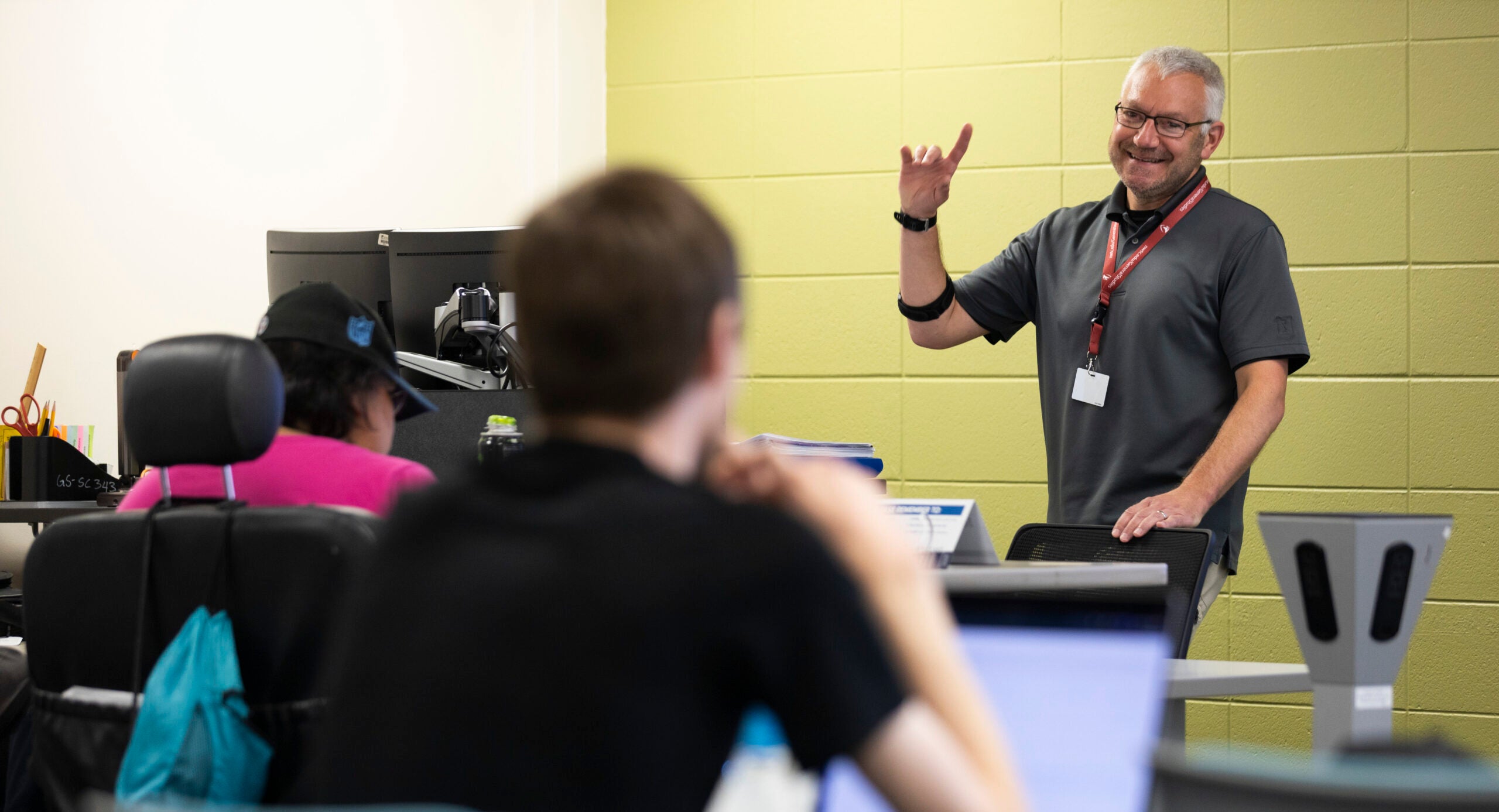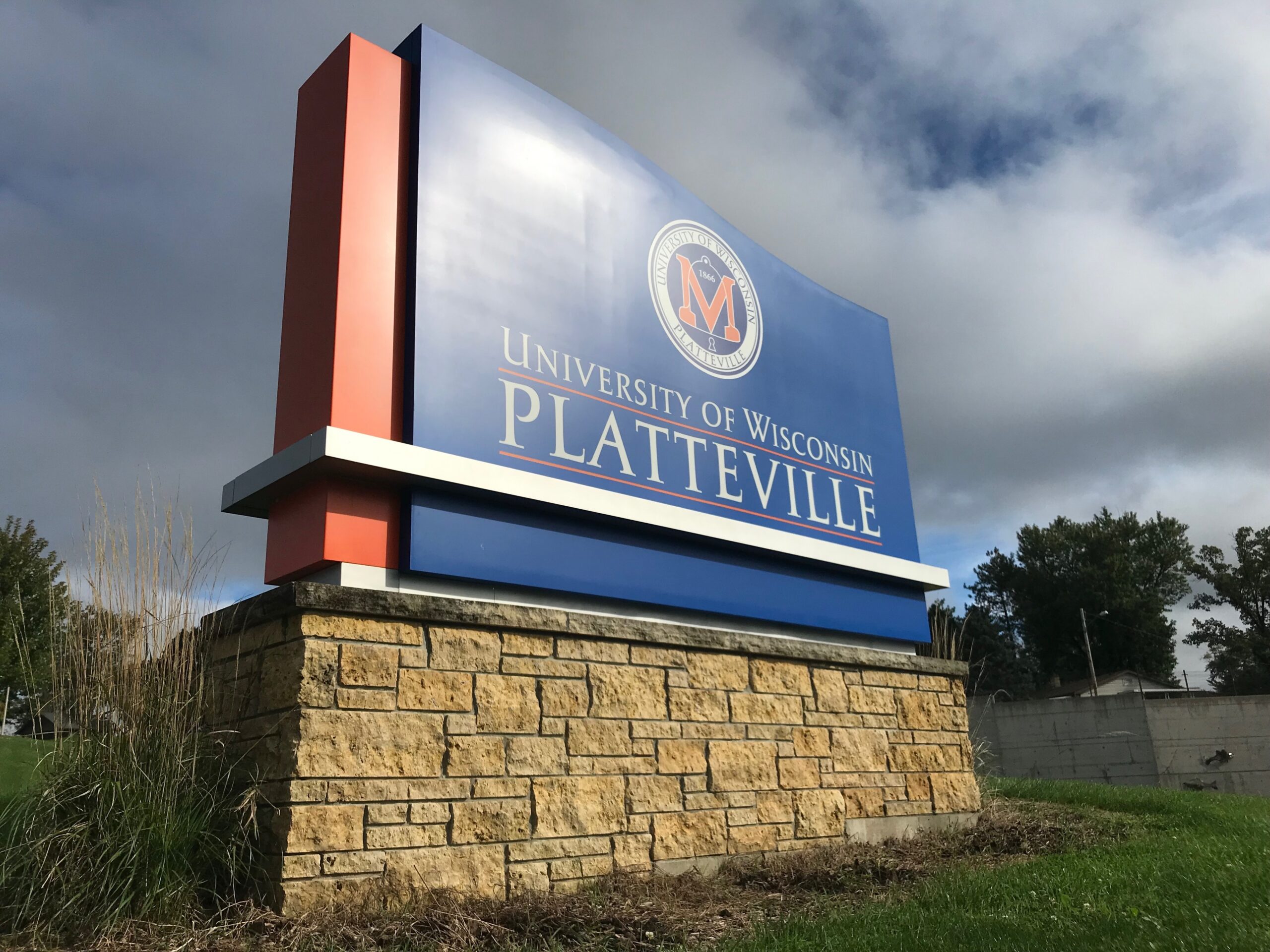The University of Wisconsin-River Falls is moving all classes online for two weeks and telling students living in residence halls to shelter in place due to a spike in students testing positive for the new coronavirus. It is the third UW System campus to pause in-person classes due to outbreaks since Sept. 9.
In an announcement posted to the UW-River Falls homepage Friday evening, the campus said it is shifting courses to online only until Oct. 3 and is implementing a “shelter-in-place” policy beginning at 7 p.m. Friday to limit the spread of coronavirus on campus and the River Falls community.
The statement said university testing showed a “minimal presence of cases” in the initial days following the start of classes Sept. 2. But as testing increased on campus, additional cases were detected in residence halls.
News with a little more humanity
WPR’s “Wisconsin Today” newsletter keeps you connected to the state you love without feeling overwhelmed. No paywall. No agenda. No corporate filter.
“Aggressive testing has enabled us to identify case increases here on campus,” said UW-River Falls Interim Chancellor Connie Foster. “To contain the spread, we will be moving to all online courses and implementing a shelter-in-place order within our campus community. Protecting the safety and health of our community is our priority, and we are working with our students to ensure they are vigilant.”
On Tuesday, Foster sent a letter to students stating that a spike in coronavirus cases had been detected within the “past 24 hours.” It also reminded students to comply with campus safety rules on facemasks and avoiding “parties, bars or other establishments where safety precautions are not enforced.”
According to the latest testing data posted by UW-River Falls, the campus reported 14 positive tests Wednesday out of a total of 219. That works out to a positive rate of just more than 6 percent. Earlier in the week, the university reported positive rates of 22.3 percent and 14.6 percent, though the total number of tests were less than half of what was posted Wednesday.
Data from the UW System’s daily report of COVID-19 testing on campuses shows more recent information than what UW-River Falls has posted. It notes a total of 76 positives out of 707 tests reported Thursday, making the positive rate 11 percent.
On Sunday, UW-La Crosse suspended in-person classes for two weeks after a spike in coronavirus infections on campus. It also ordered students living in all residence halls to shelter in place in hopes of slowing the spread of the virus.
According to UW-La Crosse’s COVID-19 dashboard, the campus reported 46 positive PCR test results out of a total of 71 tests. PCR tests detect genetic material in the coronavirus and are used to diagnose people showing symptoms or those who may have been in close contact. That means 64.7 percent of all PCR tests reported that day were positive.
The UW-La Crosse campus is also reporting results from antigen tests, which detect proteins in the coronavirus within 15 minutes but can be less accurate. UW-La Crosse reported 13 positive antigen tests out of a total of 239 for a positive rate of 5.4 percent.
UW-Madison was the first state campus to move classes online for a two-week period due to a spike in positive coronavirus tests. The university announced Sept. 9 it would move all undergraduate classes online and quarantine two residence halls through Sept. 25. As of Friday, UW-Madison reported 2,466 students and 45 employees have tested positive for coronavirus since Aug. 24. The university’s seven-day positive rate has started to drop since classes were moved online. On Friday, the reported average was 7.5 percent, which was down from a high of 10.2 percent reported Sunday.
On Friday, UW System Interim President Tommy Thompson told Wisconsin Health News that closing campuses for the remainder of the semester due to COVID-19 was not on the table. Thompson said sending students home could cause infection rates in their hometowns to rise, therefore it’s better to keep schools open.
Wisconsin Public Radio, © Copyright 2026, Board of Regents of the University of Wisconsin System and Wisconsin Educational Communications Board.







